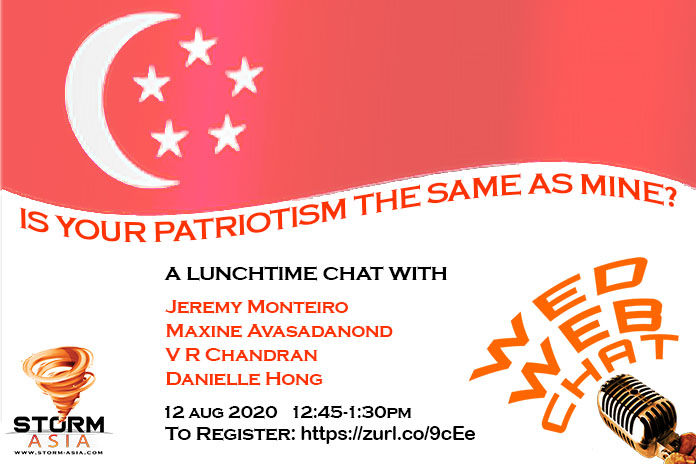
WHEN I was in school, one of my biggest challenges was my command of Mandarin.
Especially when it came to secondary school. By this time, the Ministry of Education (MOE) wanted Singaporeans to be fluent in their mother tongue, and the curriculum was such that they expected us to understand complicated phrases without having taught them to us (like they had in primary school).
With none of my family speaking Chinese at home, it was particularly difficult to catch up, let alone keep up. Even my Chinese teacher at the time said that the MOE had failed to grasp that as the third, fourth and fifth generation of people who had originally come from China/India/Malaysia, etc, grew up here, they would be lacking the foundation for their mother tongue.
As there are rarely any direct channels to communicate with the MOE, it is impossible to feedback or effect changes to the curriculum.
This gap between what the government sees and the realities of most Singaporeans was again made evident during the recent WED WEB CHAT: Can We Give As Good As We Get?
The panellists at the session spoke about the lack of information flowing from ministries to the charity organisations on the ground, forcing them “to plan in the blind” as Dr Tan Bee Wan pointed out.
In the last decade or so, issues of income inequality and the widening gap between the rich and poor in Singapore have become more painfully focused.
A core issue to contend with was the issue of meritocracy, or, rather, its manifestation in reality.
ALSO WATCH: Where’s The Post-Pandemic Customer
Traditionally, meritocracy followed the predictable definition — you work hard, use your talent well, and you will scale the ladder of success. It takes a nature and nurture combination to evaluate how you are spotted and groomed for senior positions in the system.
This thinking discounts the fact that the starting point for everyone — the environment in which they grow up — differs greatly from person to person, and hinges most of the selection process on good grades and other achievements as evidence of innate capability.
What comes of this is the “old boys” problem as discussed in Inequality and the Social Compact in Singapore: Macro Trends Versus Lived Realities by Nathan Peng (2019). In it, Peng observes that children from better-off families only socialise together and go to the same schools with one another and work in the same prestigious professions (like law/medicine).
The gap between those who are well-off and those who are not is therefore more starkly felt, especially in a small city like Singapore, even if statistics show that the people of the lowest income bracket in Singapore have an increasingly higher chance of improving their situation compared to many other countries.
Foremost on the government’s mind was the need to keep the economy growing. The GDP figures seemed to be their go-to reference point, even as other economies were adopting beyond GDP initiatives that included environmental and social aspects of progress.
ALSO READ: Why A Minimum Wage Policy Should Only Minimally Raise Costs
Peng cites schemes such as Silver support and the Progressive Wage Model, which seem to be evidence of the government not adopting stronger policies because the economic trade-off could mean that Singapore would no longer be economically competitive.
The lived realities of the poor still ensures that inequality in Singapore is more harshly felt. By adopting a more theoretical perspective to problem-solving, the reality is sometimes lost in translation when it reaches the ground.
As Dr Tan said in the Wed Web Chat, Members of Parliament will not have a good grasp of the situation on the ground as long as they don’t perform their duties in a full-time capacity. The gap between policy makers and the public has to be reduced over time for more effective policies to take root and help to build a more relevant society to the changing times.
Maxine Avasadanond is a University College of London law student.
If you have a topic that is of interest, or have someone who would make a good panellist with a thought-provoking perspective on a subject, please email editor@storm-asia.com with your details and a short summary.




















